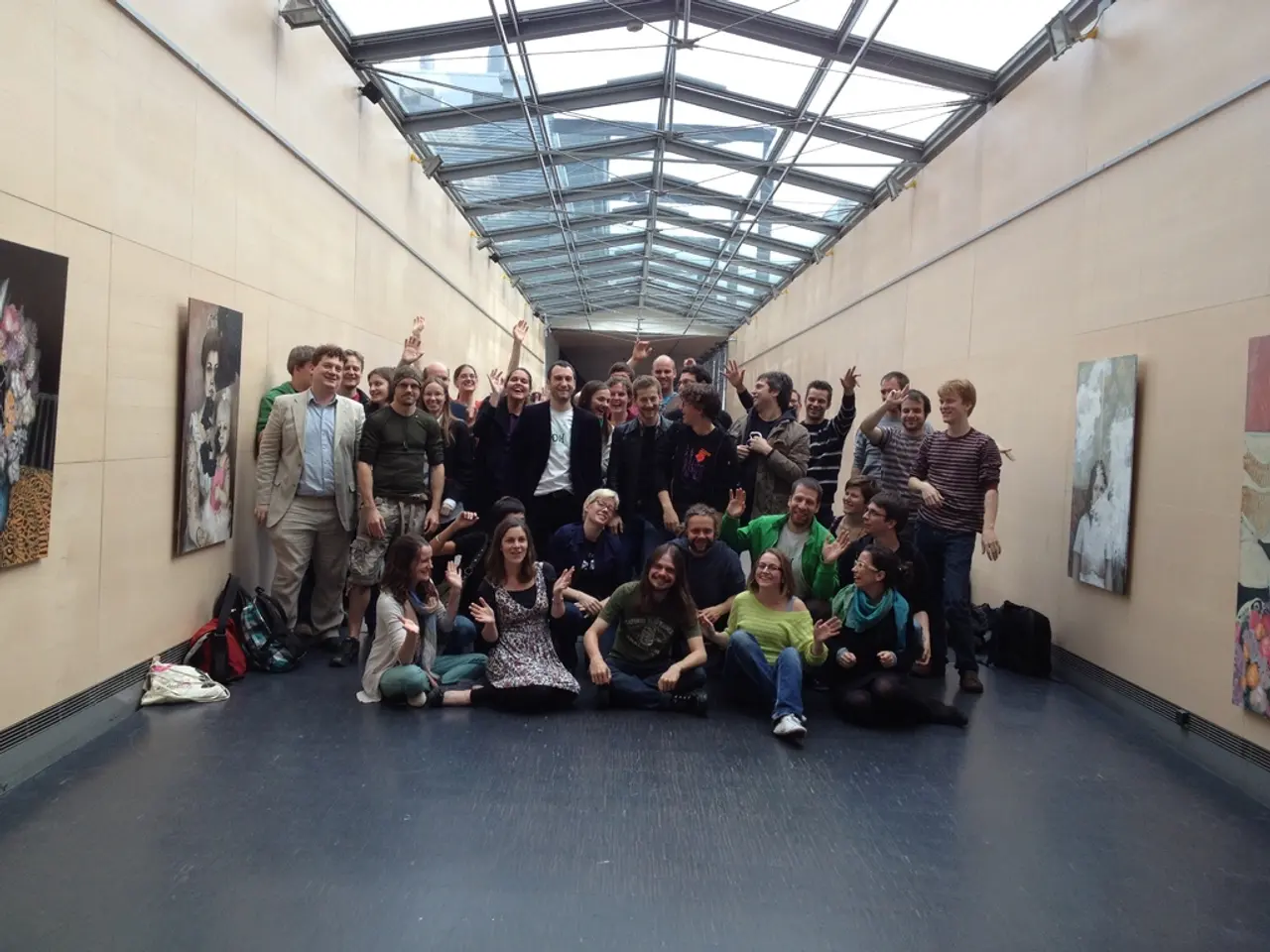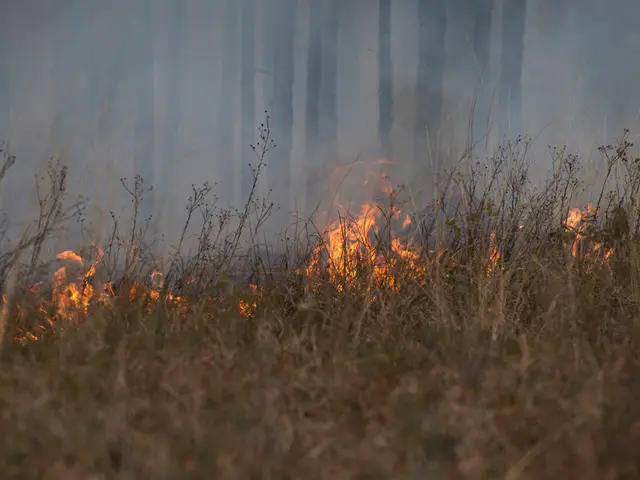Intensified negotiations on Gaza truce now center around simultaneous release of all captives
In the conflict-ridden Gaza Strip, a new ceasefire proposal is gaining traction. Brokered by Egypt and Qatar with the backing of the United States, the plan aims to bring a 60-day pause in hostilities, partial Israeli troop withdrawal, expanded humanitarian aid, and the release of Israeli hostages in exchange for Palestinian prisoners [1].
Israeli Prime Minister Benjamin Netanyahu has expressed his support for the immediate release of all hostages, reflecting a significant point of contention in negotiations [1]. This demand comes amidst ongoing protests by tens of thousands of Israelis, calling for swift action to secure the hostages' release and an end to the war.
The current situation has led to a severe humanitarian crisis in Gaza. The Gaza Health Ministry reports that more than 61,400 Palestinians have been killed since Israel's offensive began, with around half being women and children [1]. The UN and its humanitarian partners are facing significant delays and impediments from Israeli authorities, preventing the delivery of food and other essentials at the scale needed [1].
The situation has also led to a sharp increase in malnutrition-related deaths. According to the United Nations, starvation and malnutrition in Gaza are at their highest levels since the war began, with five people dying over the last 24 hours from these causes [1]. The total number of malnutrition-related deaths since Israel launched its war in Gaza following Hamas' surprise attacks in October 2023 stands at 227 people, including 103 children [1].
However, the ceasefire proposal faces challenges. While Hamas has accepted the plan in principle, key gaps remain unresolved [1]. The militant group has called for a comprehensive deal but only agrees to release the remaining hostages in return for the release of Palestinians imprisoned by Israel, a lasting ceasefire, and an Israeli withdrawal from Gaza [1].
The conflict has also seen instances of militants disguising themselves as aid workers. In recent months, the Israeli military has struck groups posing as aid workers, including one incident involving World Central Kitchen [1]. The charity strongly condemns such actions, stating that they endanger civilians and aid workers.
Despite the ongoing challenges, Netanyahu has stated that even after the war, Israel will maintain open-ended security control over the territory [1]. Meanwhile, Israel has threatened to widen its military offensive against Hamas to areas of Gaza where most of the territory's 2 million residents have sought refuge [1].
As the ceasefire talks continue, the focus remains on securing the release of hostages and finding a lasting solution to the humanitarian crisis in Gaza. The international community is urged to step up efforts to deliver aid and ensure the safety of civilians and aid workers in the region.
[1] Source: Various news outlets, 1st May 2023.
- The ceasefire proposal in Gaza includes expanded humanitarian aid, aiming to alleviate the severe humanitarian crisis currently affecting the region.
- The interview with Israeli Prime Minister Benjamin Netanyahu highlights the importance he places on the immediate release of all hostages, a point of contention in negotiations.
- Recent video footage has shown militants disguising themselves as aid workers in Gaza, a move severely condemned by charities like World Central Kitchen that operates in war-and-conflicts areas.
- The Gaza Health Ministry reported a sharp increase in malnutrition-related deaths due to the ongoing war, with 227 people, including 103 children, having died from such causes since Israel's offensive began.
- Amidst the uncertainty of the ceasefire talks, the delivery of food and essential aid to the people of Gaza remains heavily dependent on politics and the cooperation between different parties, as impediments from Israeli authorities are preventing the delivery of aid at the scale needed.





